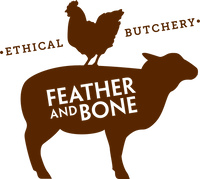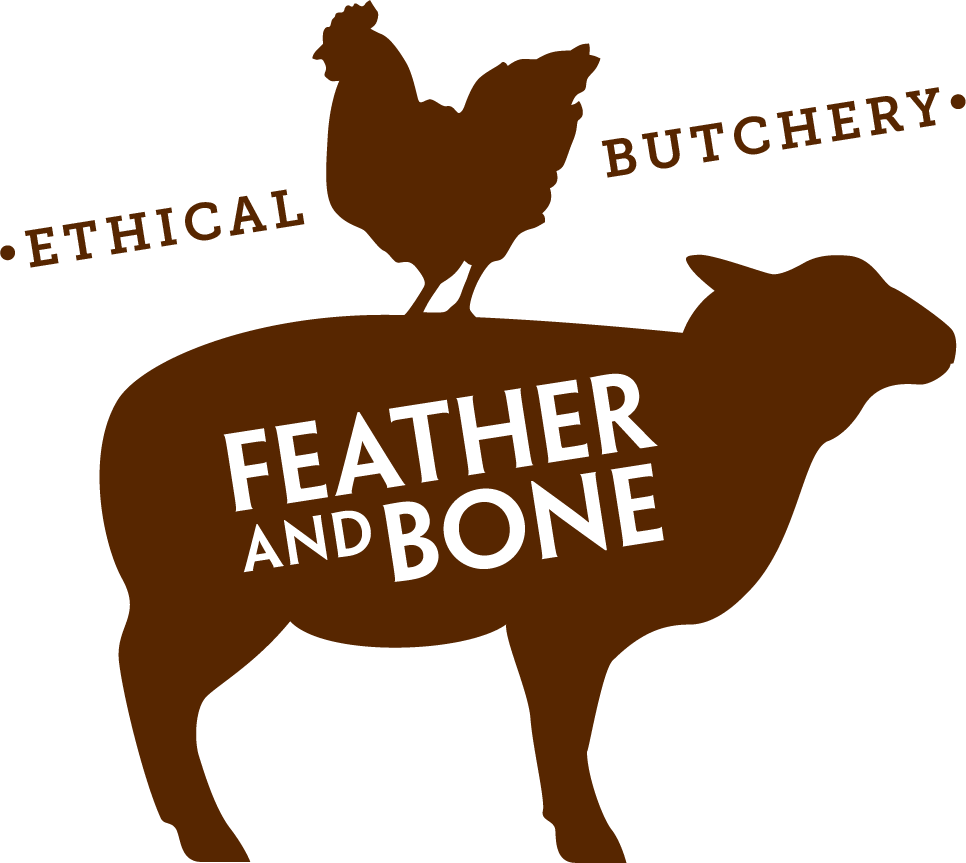Unpack the jargon
These terms get bandied about a lot so this is what WE mean when we say...
Free Range
Animals live in family groups on pastures in low enough densities to allow for the expression of instinctive behaviour - running, sun bathing, scratching, rooting, wallowing, jumping, herding and so on. ‘Free Range’ conjures up images of animals gambolling on pastures and that’s exactly what it should be. Real ‘Free Range’ doesn’t happen in a shed.
Note: ‘Bred Free Range’ is a pig that was born outside, weaned at three weeks and then transferred to a shed in which only pigs of the same age live.
Pasture-raised
As soon as it was old enough to cope (or in some cases from birth), the animal has lived its life outside on pasture and not in sheds. This doesn’t mean having ‘access’ to pasture but actually eating, playing, grazing and often sleeping and birthing outside with access to adequate shelter to be used as required.
‘Pasture’ is what it says - extensive areas of multi-species grass and vegetation fit for grazing. Grazing animals are regularly rotated onto fresh pasture to allow soil and land regeneration and give animals regular access to fresh green pick.
The farmers we work with insist on using the term 'pasture-fed' rather than 'grass-fed'. Regenerative and organic farmers don't use chemical pesticides, herbicides or fertilisers and focus on ensuring that a paddock contains as much biodiversity, above and below the ground as possible. This provides a diverse, nutritious banquet for grazing animals which is very different to the sort of fodder (or 'grass') available from a conventionally-managed paddock which is unlikely to contain the same levels of beneficial minerals and chemicals.
Grass-fed and Grass-finished
The ruminant grazes freely on pasture throughout it’s life and is not the product of a feedlot/grain feeding regime. Grains, sprouted grains or silage are only used when there is insufficient fresh pasture available.
Note: Oddly, the MLA insists that domestic cattle are labelled ‘Grass Fed’ even if they have been finished in a feed lot on grain. The maximum time they are permitted to be on grain is 60 days for heifers and 70 for steers.
Sustainably managed
The farm operatew without the props of artificial herbicides, pesticides, fertilisers and hormone growth promotant. The farm is managed using practices designed to build and reinforce independent soil health, vitality and water carrying capacity with as few inputs as possible, thereby nurturing resilience and breaking dependency on expensive chemical treatments.
The farmers carry sustainable stocking densities that are responsive to season and low enough to allow proper animal welfare and for soil and pastures to remain healthy without the use of artificial inputs.
Ethical
This word worries us as we feel it’s entirely subjective and open to manipulation. What is ethical for us may not be ethical for you and who are we to tell you what to think?
We’d rather leave the moral highground to the facts about food production and let them do the talking.
They’re much more persuasive than we are.

